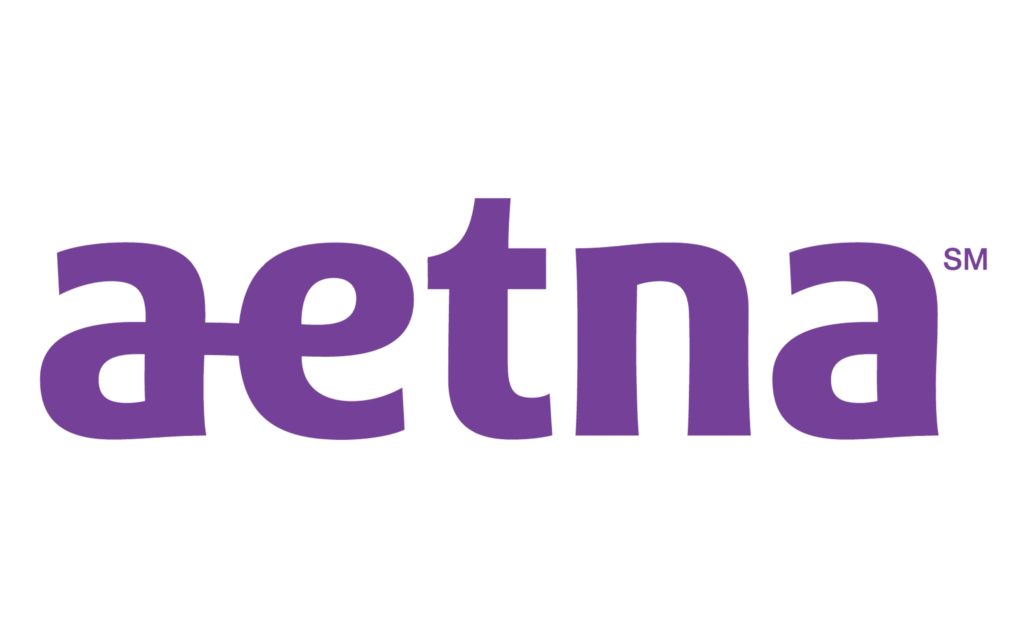Understanding Substance Use Disorders
To effectively aid someone grappling with addiction, a deep understanding of substance use disorders is of great importance. This section of our complete guide for helping someone with addiction focuses on defining addiction and illuminating its types and common signs.
Definition and Types of Addiction
Addiction is a complex disease that affects both the brain and behavior. It causes a person to compulsively seek out substances or engage in activities despite negative consequences and harmful effects on their life. It’s not confined to drug or alcohol abuse. Addiction can manifest in various forms such as:
- Substance abuse (drugs, alcohol)
- Gambling
- Compulsive shopping
- Excessive use of technology
Each type of addiction triggers a sense of pleasure or relief, further promoting the addictive behavior. These activities often lead to withdrawal symptoms when the individual attempts to quit.
Common Signs of Addiction
Recognizing the signs of addiction is an essential first step in providing help. Signs of addiction can vary based on the type of addiction and the individual, but they often involve physical, social, and emotional changes.
Physical changes may include:
- Bloodshot eyes
- Unexplained injuries
- Changes in sleep patterns
- Dramatic weight loss or gain
Social changes may include:
- Sudden changes in friendships
- Secretive behavior
Emotional changes may include:
- Mood swings
- Depression
- Anxiety
These signs may indicate a possible substance use disorder, but they can also be related to other health issues. Therefore, it’s important to approach the individual with empathy and compassion, avoiding blame or judgment.
Understanding substance use disorders is the first step in the journey of helping someone with addiction. By recognizing the signs and types of addiction, you can better support your loved one through their recovery journey. Remember, educating yourself about addiction, setting boundaries to protect yourself and others from harmful behaviors, and practicing self-care are vital aspects of supporting a loved one struggling with addiction.
The Impact of Addiction
Substance use disorders, or addiction, is a complex disease that affects both the brain and behavior, causing individuals to compulsively seek out substances or engage in activities despite negative consequences and harmful effects on their life. The impact of addiction is multifaceted, manifesting in various forms and often leading to significant physical, emotional, and social consequences. Understanding these consequences is a crucial aspect of helping someone with addiction.
Physical Consequences
Addiction can lead to numerous physical changes. These may include bloodshot eyes, unexplained injuries, changes in sleep patterns, or dramatic weight loss or gain (Recovery Centers of America). Furthermore, substance abuse can result in severe withdrawal symptoms when an individual attempts to quit, which can be physically uncomfortable or even dangerous, depending on the substance.
The physical consequences of addiction extend to long-term health issues, including potential damage to vital organs, increased risk of infectious diseases, and a higher likelihood of accidents or injuries. In severe cases, substance use disorders can lead to life-threatening conditions and require immediate medical attention.
Emotional and Social Ramifications
In addition to the physical effects, addiction carries significant emotional and social ramifications. Individuals struggling with addiction often experience mood swings, depression, or anxiety as a result of their substance misuse. They may also have difficulty managing their emotions, leading to unpredictable behavior and instability.
The social consequences of addiction are equally concerning. Substance misuse can lead to sudden changes in friendships, secretive behavior, strained relationships, and isolation. It often results in loss of employment, financial difficulties, and a decline in overall well-being. These factors can further exacerbate feelings of loneliness and despair, creating a vicious cycle that can be challenging to break (Recovery Centers of America).
Addressing these emotional and social aspects is an integral part of the recovery process. It’s crucial to create a supportive environment where individuals feel safe, understood, and accepted, free from judgment or criticism. This environment should be guided by empathy and compassion during the inevitable setbacks and relapses that may occur (Pacific Crest Trail Detox).
By gaining a comprehensive understanding of the physical, emotional, and social impacts of addiction, you will be better equipped to provide the necessary support and guidance for someone navigating the path to recovery. This understanding forms a critical part of the complete guide for helping someone with addiction, aiding in the development of more effective intervention strategies and treatment plans.
The Intervention Process
The journey to help someone with substance use disorders often begins with an intervention. This process, as defined by the Mayo Clinic, is a carefully planned approach carried out by family, friends, or professionals. It aims to help the person recognize the immediate need for change and the support available for initiating treatment.
Planning an Intervention
A successful intervention requires careful planning to achieve its intended results. Here are the steps to follow according to the Mayo Clinic:
- Make a Plan: The first step involves devising a well-thought-out strategy. This might involve consultation with a doctor, a licensed alcohol and drug counselor, or an intervention professional.
- Form the Intervention Team: This group typically includes close family and friends who are concerned about the individual suffering from substance use disorder. The team could also include professionals who have been dealing with the individual’s case.
- Decide on Specific Consequences: If the person refuses to accept treatment, the team should decide on the consequences. This could involve limiting contact or withdrawing financial support.
- Make Notes on What to Say: Each team member should prepare a speech detailing the negative impact of the individual’s substance use on their lives. These messages should be expressed in a non-judgmental manner, focusing on care, concern, and the need for change.
- Arrange for Treatment: If the individual accepts the need for help, it’s critical to have treatment options ready. This could include immediate admission to a rehabilitation program.
Conducting an Intervention
Once the planning phase is complete, the team should conduct the intervention. During this meeting, each team member takes turns to express their concerns and feelings. The individual is then presented with a treatment option and asked to accept this help immediately.
A well-executed intervention can be a significant step towards recovery. However, it’s crucial to remember that an intervention can be emotionally charged, and reactions can be unpredictable. It’s often beneficial to have a professional present to keep the discussion on track and mediate if necessary.
After the intervention, follow-up is crucial. The team should ensure the individual is attending treatment sessions and staying on track. Continued support and encouragement can play a pivotal role in the person’s journey towards recovery.
Interventions aren’t an easy or comfortable process; however, they can be a catalyst for change, marking the first step on the path to recovery. By following these steps in this complete guide for helping someone with addiction, you can offer the support needed for their journey towards recovery.
Treatment Options for Addiction
When it comes to treating addiction, a comprehensive approach is often the most effective. This typically involves a combination of therapy, medication-assisted treatment, and holistic therapies. Let’s delve into these options more closely.
Therapy and Counseling
Therapy and counseling are cornerstones of addiction treatment. They aim to address the underlying issues tied to addiction, change negative thought patterns, and increase coping skills for long-term recovery (American Addiction Centers).
Several types of therapy can be particularly beneficial for individuals struggling with addiction:
- Cognitive Behavioral Therapy (CBT): This is one of the most widely used therapies in addiction treatment. CBT focuses on changing negative thought patterns and behaviors that lead to addiction. It helps individuals recognize and cope with triggers effectively.
- Dialectical Behavior Therapy (DBT): This therapy combines cognitive-behavioral techniques with mindfulness practices to help individuals regulate emotions, tolerate distress, and improve relationships. DBT has been found to be particularly beneficial for those with substance use disorders.
- Motivational Interviewing (MI): A client-centered counseling approach, MI helps individuals resolve their ambivalence towards change. It involves eliciting and strengthening an individual’s motivation to make positive decisions regarding their addiction recovery (Eudaimonia Homes).
By working with a qualified therapist or counselor, individuals can make significant progress in their recovery journey.
Medication-Assisted Treatment
Medication-assisted treatment (MAT) is another crucial component of addiction recovery. This involves the use of medications, in combination with therapy and counseling, to manage withdrawal symptoms, reduce cravings, and restore normal brain function.
The type of medication used will depend on the specific substance an individual is struggling with. For example, methadone, buprenorphine, and naltrexone are commonly used in the treatment of opioid addiction. It’s important to note that these medications are not a cure for addiction, but rather a tool that can make recovery more manageable.
Role of Holistic Therapies
Holistic therapies are becoming increasingly recognized for their role in addiction recovery. These therapies aim to promote overall well-being, reduce stress, and support recovery by addressing the physical, emotional, and spiritual aspects of an individual.
Some examples of holistic therapies used in addiction treatment include yoga, art therapy, meditation, acupuncture, and exercise. These activities can help to enhance the effectiveness of traditional therapies, providing individuals with additional tools to manage stress, improve mental clarity, and maintain their recovery (American Addiction Centers).
By combining these various treatment approaches, individuals can receive comprehensive support as they navigate their journey to recovery. It’s important to remember that each person’s recovery journey is unique, and what works best will depend on their specific needs and circumstances.
Role of Support Groups
Support groups form a crucial pillar in the journey of recovery from substance use disorders. These groups provide a platform for individuals to receive and offer support, fostering a sense of community and shared understanding. This section explores the importance of peer support and the types of support groups available.
Importance of Peer Support
Peer support plays an indispensable role in the recovery process from addiction. Support groups offer a safe space, where individuals can share their experiences, struggles, and triumphs related to addiction. This ongoing encouragement and accountability can significantly aid their recovery journey (American Addiction Centers).
For those who have loved ones grappling with addiction, support groups act as essential tools. They offer understanding, guidance, and support throughout the recovery process. These groups can help individuals learn more about addiction, the recovery process, and how best to support their loved ones.
Joining a support group can provide a powerful means for family members and friends to cope with the challenges of having a loved one with addiction. It offers a sense of community and solidarity in facing these difficulties together (The Recovery Village).
Types of Support Groups
There are several types of support groups, each catering to different needs and preferences. Some of the popular ones include:
- Al-Anon and Nar-Anon: These groups provide a space for individuals to share experiences, gain insights, and build a network of understanding individuals who are going through similar situations. They are specifically designed for friends and family members of those struggling with alcohol (Al-Anon) or narcotics (Nar-Anon) addiction (The Recovery Village).
- Alcoholics Anonymous (AA) and Narcotics Anonymous (NA): These groups offer peer support for individuals recovering from alcohol or drug addiction, using a 12-step program that promotes spiritual growth and self-improvement.
- SMART Recovery: This group takes a scientific, evidence-based approach to addiction recovery, focusing on self-empowerment and self-reliance.
- LifeRing Secular Recovery: This group offers a secular alternative to the 12-step program, promoting personal growth and continuous learning in the recovery process.
Support groups form an essential part of a comprehensive approach to addressing substance use disorders. They play a pivotal role in providing individuals and their loved ones with the support, understanding, and resources they need to navigate the path to recovery. Embracing the role of these groups can significantly enhance the effectiveness of the efforts to help someone with addiction.
Creating a Supportive Environment
In the journey of helping someone overcome addiction, establishing a supportive environment plays a pivotal role. This involves setting healthy boundaries to maintain personal well-being and foster healthier relationships, and promoting self-care for both the one battling addiction and the ones supporting them.
Setting Healthy Boundaries
Setting boundaries is a crucial task when providing support to someone with addiction. Boundaries help preserve personal well-being, prevent enabling destructive behavior, and ensure that the relationship remains healthy and supportive (Boardwalk Recovery Center).
Some potential boundaries may include:
- Limiting financial support to prevent enabling substance use.
- Not tolerating abusive or disrespectful behavior.
- Not covering up or making excuses for the addicted person’s actions.
- Prioritizing personal self-care and well-being.
Setting these boundaries can be challenging as it may involve difficult conversations and decisions. However, it is essential for establishing a supportive environment that promotes recovery while also protecting the well-being of everyone involved.
Promoting Self-Care
In addition to setting boundaries, promoting self-care is vital when helping someone with addiction. This involves encouraging the individual to take care of their physical, emotional, and mental health. It also means ensuring that the caregiver or support person also maintains their own self-care regimen.
For those struggling with addiction, self-care may involve:
- Regular participation in therapy sessions or support groups to foster a sense of community and solidarity, which are essential for long-term sobriety (Boardwalk Recovery Center).
- Adopting healthy habits, such as regular exercise, balanced diet, and good sleep hygiene.
- Engaging in hobbies and activities that they enjoy and that promote relaxation and stress relief.
For the supporters, self-care may include:
- Taking time for relaxation and rejuvenation.
- Maintaining a balanced lifestyle that includes a healthy diet, regular exercise, and enough sleep.
- Seeking support from loved ones or professional counselors to manage the emotional stress that can come with supporting someone with addiction.
Promoting self-care is a key aspect of creating a supportive environment for addiction recovery. It helps ensure that everyone involved in the recovery journey is taking care of their own health and well-being, which in turn enables them to provide more effective support.
Utilizing Available Resources
When supporting someone with addiction, it’s important to be aware of the wide array of resources available to help guide the path to recovery. These resources can provide valuable information, treatment referrals, and support to both individuals with substance use disorders and their loved ones. In this section, we’ll discuss two key resources: SAMHSA’s National Helpline and various online platforms.
SAMHSA’s National Helpline
The Substance Abuse and Mental Health Services Administration (SAMHSA) provides a National Helpline that offers free and confidential treatment referral and information service. Available 24/7, this helpline caters to individuals and families facing mental and/or substance use disorders.
Through this helpline, callers can access a database of over 160,000 treatment facilities, including residential, outpatient, and hospital inpatient programs. The service is available in both English and Spanish, making it accessible to a wide range of individuals in need of support and assistance.
| Resource | Description | Availability |
|---|---|---|
| SAMHSA’s National Helpline | Free and confidential treatment referral and information service for individuals and families facing mental and/or substance use disorders. Provides access to a database of over 160,000 treatment facilities. | 24/7, in English and Spanish |
Online Platforms for Support
In addition to helplines, there are numerous online platforms designed to support those in recovery from addiction. Platforms like Sober Grid and In The Rooms offer a range of services, including virtual support groups, forums, confidential support, and referrals to treatment resources.
These platforms can provide a sense of community, offering a safe space for individuals to share their experiences, gain insights from others in similar situations, and receive encouragement and support on their recovery journey. Leveraging these available resources is essential when supporting someone in addiction recovery.
| Online Platform | Services |
|---|---|
| Sober Grid | Virtual support groups, forums, confidential support, referrals to treatment resources |
| In The Rooms | Virtual support groups, forums, confidential support, referrals to treatment resources |
Utilizing these resources can be a crucial part of the path to recovery, providing valuable assistance to those affected by addiction and those supporting them. By connecting with these resources, individuals and their loved ones can access the necessary tools to navigate the recovery process and work towards a healthier future.










